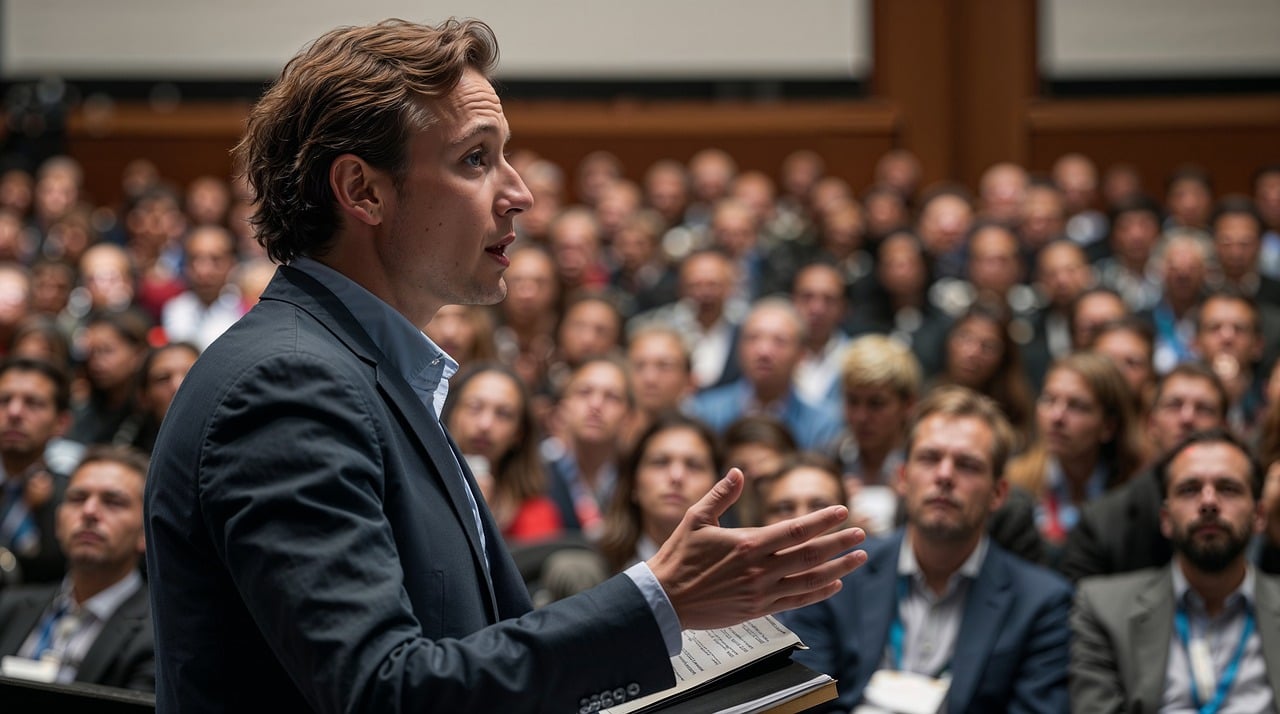
- 2024 proved how effective podcasts are
- Six big advantages of using podcasting as a candidate or to drive issues
- The ways advocacy groups are using podcasts
- Why podcasts give you a huge awareness head start long before any campaign
PODCASTING: tHE INFLUENCE MACHINE
The 2024 election cycle demonstrated the enormous, previously untapped power of podcasts as a direct, effective, and highly personal means for candidates and advocacy groups to connect with their audiences. Podcasting for politicians and to promote issues is here to stay.
As traditional media continued to fragment and social media became increasingly unpredictable, along with trust issues, podcasts emerged as the platform for longform, organic, authentic, nuanced discussions that built trust, credibility, and newfound support.
Candidates who adopted podcasting early in their campaigns gained a significant advantage by fostering deep relationships with their audience, solidifying their messaging, and staying in front of voters consistently. Meanwhile, advocacy groups used podcasts to drive home their policy messages, mobilize supporters, and create ongoing engagement beyond just election, legislative, or fundraising seasons.
In short, podcasting roared onto the scene as an indispensable tool for political and advocacy communication. Staying silent is no longer viable.
THE UNIQUE ADVANTAGES OF PODCASTING FOR POLITICIANS AND ADVOCACY GROUPS
- Building Trust and Credibility
Podcasting offers an unfiltered, intimate format where candidates and advocates can speak directly to their audience, free from media spin or soundbite culture. A well-produced podcast allows leaders to:
- Share their vision in-depth.
- Address misconceptions and criticisms head-on.
- Showcase their personality and values authentically.
- Establishing Regular Touchpoints with Constituents
Unlike sporadic campaign events or social media posts that get lost in algorithmic chaos, a podcast provides a structured, ongoing channel to keep in touch with supporters. Weekly or bi-weekly episodes create a sense of continuity, keeping an audience engaged, informed, and active long before an election or critical advocacy push.
- Growing and Activating an Email List
A podcast is a powerful lead-generation tool. With the right strategy, each episode can drive listeners to sign up for exclusive content, event invitations, or campaign updates, significantly growing an email list. Since email remains one of the most effective tools for fundraising and mobilization, a podcast essentially becomes a content engine fueling supporter engagement.
- Solidifying Relationships and Mobilizing Support
Podcast listeners are loyal. Studies show that podcast audiences develop a deeper connection with hosts compared to other media formats. When candidates and advocacy leaders become trusted voices in their audience’s lives, they gain an engaged base that is more likely to volunteer, donate, and spread the word.
- The “Always-On” Awareness Advantage
Most politicians and advocacy groups struggle with needing to rapidly ramp up awareness right before an election or key policy moment. This is expensive and inefficient. A podcast provides a steady, running head start in building familiarity, name recognition, and message clarity long before a campaign heats up.
- The Unmatched Benefits of Audio Content
A podcast is uniquely positioned among other content types because:
- It’s a one-to-one listening experience. Unlike social media or video, podcasting feels like listening in to an intimate, personal conversation.
- Listeners can multi-task. Listeners tune in while commuting, exercising, or doing chores—times when other media formats aren’t as accessible.
- It doesn’t require screen time. In a world oversaturated with visual content, podcasting remains the only format that engages without demanding eyes locked on a screen.
POLITICIANS ALREADY USING PODCASTS TO THEIR ADVANTAGE
You won’t be the first. Several well-known politicians have leveraged podcasting to communicate directly with their audiences, bypassing traditional media gatekeepers and fostering deep engagement:
- Ted Cruz – “Verdict with Ted Cruz” – The U.S. Senator uses his podcast to discuss political issues, judicial matters, and insider insights from Washington, D.C.
- Hillary Clinton – “You and Me Both” – The former Secretary of State and presidential candidate engages in deep conversations with thought leaders across various fields.
- Andrew Yang – “Forward” – The former presidential and NYC mayoral candidate uses his podcast to promote new ideas and policy discussions.
- Nikki Haley – “Nikki Haley Live” – The former South Carolina governor, US Ambassador to the UN, and presidential candidate stays on the radar with talk about politics, social issues, and real life.
These politicians recognize a podcast provides an enormously beneficial platform to their brands and a way to help shape narratives in a way traditional media just doesn’t.
A POWERFUL TOOL FOR ADVOCACY ORGANIZATIONS
Beyond political candidates, advocacy organizations have embraced podcasting as a strategic asset. Whether fighting for policy change, raising awareness for industry challenges, or rallying a cause, organizations use podcasts to:
- Educate and Inform – Providing deep dives on issues that might otherwise be misunderstood in mainstream media.
- Highlight Voices from the Field – Featuring expert guests, grassroots organizers, and those directly impacted by policies.
- Drive Fundraising and Action – Engaged listeners are more likely to donate and participate in campaigns when they regularly hear compelling stories and calls to action.
WHEN IS THE RIGHT TIME TO START A PODCAST?
If you’re running for office, managing a campaign, or leading an advocacy organization, the benefits of podcasting are crystal clear:
- It establishes you as a thought leader.
- It creates deep, lasting connections with your audience.
- It keeps you top-of-mind long before election season.
- It gives you a direct, controlled platform to shape your message.
HOW HARD IS IT TO START A PODCAST?
The amazing thing is that for it to be one of the most effective and cost-effective communication channels available, starting a podcast is easier than you might think, provided you have the right help. Your podcast “showrunner” should be able to make the process enjoyable and offer to handle as much or as little of the work involved as you’d like.
If you want to explore what your show could be, that talk with Mike Stiles at Brand Content Studios is no charge: stiles – at – brandcontentstudios.com. Up your profile, take control of your narrative, build your base, and drive real change.
It’s Not Difficult With the Right People
I’ll work one on one with you in an a la carte manner to determine how much or little assist you need to get your brand podcast up and running or to revive an existing one.

Mike Stiles
